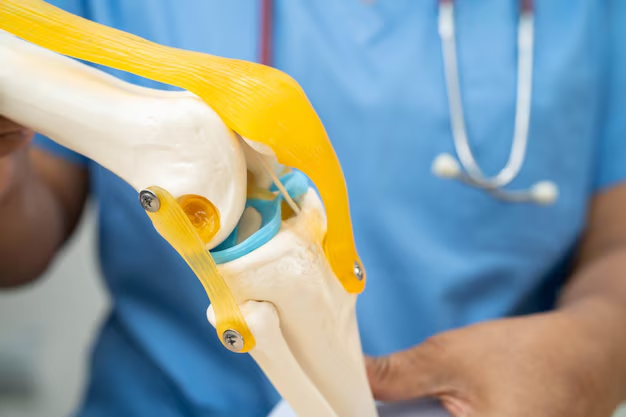Your Guide to What Is The Best Treatment For Osteoporosis
What You Get:
Free Guide
Free, helpful information about Osteoporosis FAQ and related What Is The Best Treatment For Osteoporosis topics.
Helpful Information
Get clear and easy-to-understand details about What Is The Best Treatment For Osteoporosis topics and resources.
Personalized Offers
Answer a few optional questions to receive offers or information related to Osteoporosis FAQ. The survey is optional and not required to access your free guide.
Discover Effective Osteoporosis Treatments That Could Transform Your Health
Osteoporosis is a condition that affects millions worldwide, leading to fragile bones and an increased risk of fractures. Understanding the best treatment options for osteoporosis is essential for maintaining your health and preventing further bone deterioration. Let's explore the most effective strategies to manage this condition while highlighting additional resources that could improve your quality of life.
Understanding Osteoporosis Treatment Options
Medication:Bisphosphonates are the most common medications prescribed for osteoporosis and include drugs like alendronate, risedronate, and zoledronic acid. These help slow bone density loss, reducing the risk of fractures. Denosumab, an injectable drug, is another option and particularly beneficial for individuals who can't tolerate bisphosphonates. Hormone-related therapies, such as selective estrogen receptor modulators (SERMs) and hormone replacement therapy (HRT), may also be suitable for some postmenopausal women.
Calcium and Vitamin D: These are vital components for maintaining bone health. Ensuring sufficient calcium and vitamin D intake supports bone strength and density. Dietary sources, along with supplements, can help meet daily requirements.
Lifestyle Changes: Incorporating weight-bearing exercises like walking, dancing, or resistance training into your routine can enhance bone strength. Avoiding smoking and limiting alcohol consumption are also recommended, as these habits can exacerbate bone loss.
Dietary Adjustments: A bone-friendly diet is crucial. Include foods rich in calcium, vitamin D, protein, and other essential nutrients. Leafy greens, dairy products, fish, and fortified foods are excellent choices.
Regular Monitoring: Regular bone density tests (DEXA scans) help monitor bone health and guide treatment decisions. Keeping an open line of communication with your healthcare provider ensures treatments are effectively managing your condition.
Enhancing Quality of Life Beyond Medical Treatments
Managing osteoporosis can be expensive and stressful, especially when balancing it with daily life and financial responsibilities. Thankfully, various resources are available to support not just your health, but also your financial well-being.
Financial and Educational Resources Available
🔹 Government Aid Programs: Programs like Medicaid can assist with the cost of osteoporosis treatments, covering medications and regular check-ups. It's important to check eligibility and apply to ease the financial burden.
🔹 Financial Assistance for Medication: Several pharmaceutical companies offer discount programs or free medications to those who qualify. Explore these options to reduce your medication expenses.
🔹 Debt Relief Options: High medical bills can lead to financial strain. Organizations offering debt relief solutions can help lower or manage mounting medical debts, providing some much-needed breathing room.
🔹 Educational Grants: If your health concerns are affecting your education or career advancement, educational grants and scholarships can provide support. These resources often cater to individuals looking to upgrade their skills while managing chronic conditions.
🔹 Credit Card Solutions: Credit cards with favorable terms or reward programs for healthcare expenses can help manage costs effectively. Look for cards that offer cash back on medical purchases, easing the financial pressure.
Staying informed about treatment options for osteoporosis and exploring available resources can significantly improve your quality of life. By combining medical treatment with financial and educational aid, you can manage osteoporosis effectively while enjoying peace of mind in other areas of life.
Relevant Resources for Support
- 🏥 Medicaid: Financial coverage for qualifying medical treatments.
- 💊 Pharmaceutical Assistance Programs: Discounts or free medications for eligible individuals.
- 💳 Credit Card Rewards: Cards offering cash back on healthcare expenses.
- 📚 Educational Grants: For those balancing education and healthcare challenges.
- 💼 Debt Management Services: Assistance in reducing or managing medical debts.
What You Get:
Free Osteoporosis FAQ Guide
Free, helpful information about What Is The Best Treatment For Osteoporosis and related resources.

Helpful Information
Get clear, easy-to-understand details about What Is The Best Treatment For Osteoporosis topics.

Optional Personalized Offers
Answer a few optional questions to see offers or information related to Osteoporosis FAQ. Participation is not required to get your free guide.


Discover More
- a Nurse Is Caring For a Client Who Has Osteoporosis.
- a Percutaneous Is Performed To Treat Osteoporosis Related Compression Fractures
- Can Alcohol Cause Osteoporosis
- Can I Do Pilates If I Have Osteoporosis
- Can I Reverse Osteoporosis
- Can Men Get Osteoporosis
- Can Osteoporosis Affect Teeth
- Can Osteoporosis Be Cured
- Can Osteoporosis Be Painful
- Can Osteoporosis Be Reversed
